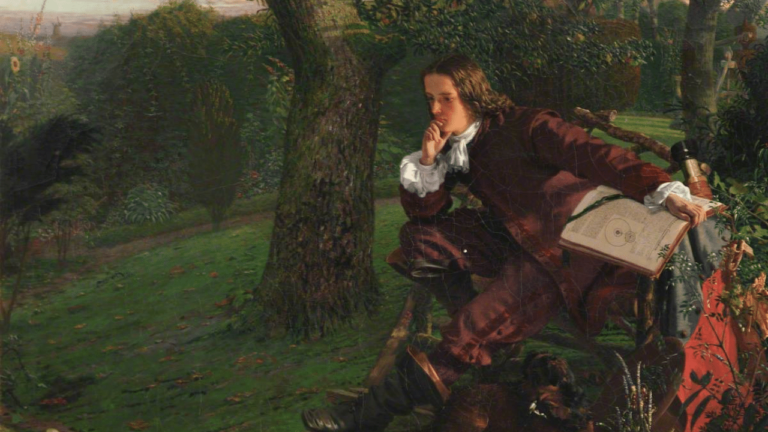In a world characterized by extraordinary achievements, a select few individuals stand out as agents of inspiration and change. These extraordinary men have left an indelible impact on history, reshaping the world and inspiring generations to come. Here, we honor the ten greatest men in the world, whose contributions have made them true icons of our time.
Top 10 Greatest Men on the Planet 2023
There are many remarkable figures in the world who have contributed greatly to the well-being of humanity. Based on Michael H. Hart’s book, The 100: A Ranking of the Most Influential People in History, we have ranked the greatest men in history. Determine the best individual in the world and the ten greatest men in the world.
Who is the greatest person in the world?
Isaac Newton


Isaac Newton (1643-1727) was a renowned English physicist, mathematician, astronomer, and philosopher who made fundamental contributions to physics and mathematics. His work laid the foundations of classical mechanics and the laws of motion, and he is widely regarded as one of the greatest scientists in history.
Top 10 Tallest Men in the World According to Wikipedia
Consider the top 10 men in the world in 2023. These are the 10 tallest people in the world according to Wikipedia.
| Rank | Name |
| 1 | Isaac Newton |
| 2 | Jesus |
| 3 | Buddha |
| 4 | Confucius |
| 5 | Paul of Tarsus |
| 6 | Ci Ln |
| 7 | Johannes Gutenberg |
| 8 | Christopher Columbus |
| 9 | Albert Einstein |
| 10 | Louis Pasteur |
Top 10 Greatest Men in World History
Now let’s look at the details of the top 10 greatest men in world history.
Isaac Newton


Isaac Newton practiced physics, natural philosophy, mathematics, astronomy, alchemy and theology. Newton’s law of gravitation and the three laws of motion constitute the basis of mechanics. Its laws were used for various purposes.
Jesus


Jesus is a religious leader and was revered by Christians as a deity. He was believed to be the Son of God. He was the central figure of Christianity and the incarnation of God. Many Christians worship him devotedly and Christianity is the predominant religion in the world.
Buddha


Buddha, whose original name is Siddhartha Gautama, is also an ancient Indian spiritual teacher and philosopher. He was born in Nepal and is considered the founder of Buddhism. Buddha is commonly known as Gautama Buddha and is called the Light of Asia.
Confucius


Confucius was a philosopher and theoretician. It was he who founded Confucianism. His teachings and philosophy influenced thought and way of life in China, Korea, Japan, Vietnam and Indonesia.
Paul of Tarsus


Paul of Tarsus was a Christian apostle and notable early Christian missionary, credited with proselytizing and spreading Christianity primarily to the Romans outside of Palestine. Many letters of the New Testament of the Bible were written by him.
Ci Ln


The paper was considered to have been invented by Ci Ln. He was a Chinese politician who is credited with inventing the paper-making process. As the world cannot function without paper, his invention is among the most beautiful.
Johannes Gutenberg


Johannes Gutenberg was a German printer. He invented the mechanical printing press in Europe. Gutenberg’s inventions marked the beginning of the modern era in human history and sparked the printing revolution in Europe.
Christopher Columbus


The explorer Christopher Columbus was. He was an Italian explorer and navigator. His travels increased Europeans’ knowledge of the American continents. He is considered one of the greatest individuals in the universe.
Albert Einstein


Albert Einstein is an internationally renowned scientist. Born in Germany, he was also a physics theoretician. The world was influenced by his theory of relativity, particularly by the mass-energy equivalence expressed by the equation E = mc2. He was one of the most accomplished scientists in the world.
Louis Pasteur


Louis Pasteur (1822-1895) was a renowned French scientist and chemist who contributed significantly to the disciplines of microbiology and immunology. His groundbreaking discoveries and experiments revolutionized the understanding of infectious diseases and led to the development of key principles and techniques in microbiology.
Pasteur developed the process of pasteurization, which involves heating liquids to kill harmful bacteria and extend their shelf life. This method has since become widespread in the food and beverage preservation industry. Additionally, he was instrumental in disproving the theory of spontaneous generation and establishing the germ theory of disease, which states that microorganisms are the cause of many diseases.
Conclusion
In a world marked by extraordinary achievements, these exceptional individuals have shaped history and continue to inspire. Through their profound contributions, they have become icons of our time, leaving an indelible legacy for future generations to admire and follow.
